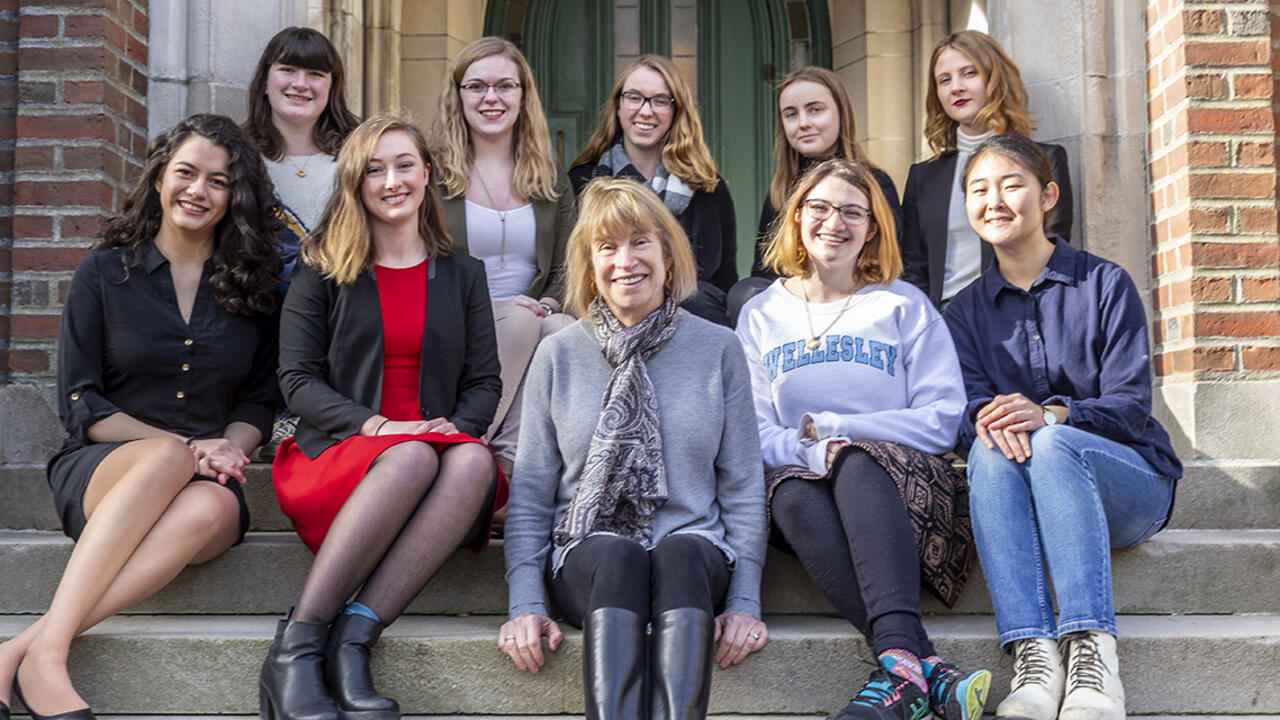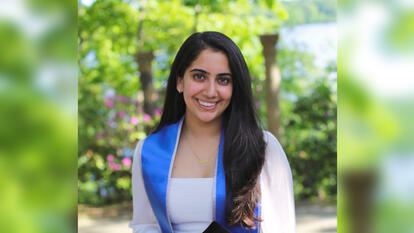Nine Wellesley Honors Students Received Inaugural Samuel and Hilda Levitt Fellowships in 2018

In the spring of 2018, nine Wellesley honors students—three each in the humanities, the social sciences, and the sciences who demonstrate a commitment to service—were awarded the inaugural Samuel and Hilda Levitt Fellowships. Named for her parents by Andrea Levitt ’71, the Margaret Clapp ’30 Distinguished Alumna Professor Emerita of French and Linguistics, the $3,500 awards are given at the end of the junior year to support students as they work on their honors theses.
Levitt said one of the transformative experiences of her undergraduate education at Wellesley was writing an honors thesis, on a French novelist and filmmaker. As a professor, she said, “I wanted to offer that experience to as many undergraduates as possible.”
During her 40-plus years as a faculty member, Levitt advised more than 70 students on independent studies and writing honor theses. She also served on the subcommittee that helped select the Schiff Fellows from senior applicants writing honors theses.
“It was clear to all of us on the subcommittee that we didn’t have enough money to provide stipends for all of the deserving students writing theses,” said Levitt. “I decided to provide funds to the College at the time of my retirement so that additional students writing honors theses could be supported in their work.”
“Wellesley’s Latin motto also urges us to serve, and I have always believed service to be important, because I see it as key to building thriving communities,” she added. “As we would for all Wellesley students, we hope these students achieve the goals that they set for themselves and do so keeping in mind the importance of giving back to their communities.”
Applications for this year’s junior class can be submitted May 1.
The 2018 recipients were:
Kate Applegate ’19, philosophy, who is examining workplace sexual harassment as a linguistic act to clarify what is meant by sexual harassment.
Andrea Bejar ’19, biological sciences, who is investigating epigenomic markers that lead to an increase risk of insulin resistance in individuals.
Nathalie Bolduc ’19, environmental studies and political science, who is analyzing the role of international law in ensuring the right to food and how these legal frameworks may prevent food insecurity.
Angela Coco ’19, history, who is studying how the Punic Wars altered the individual lives and experiences of Roman citizens.
Samantha English ’19, English, who is studying three British novels that feature female protagonists and heavily evoke birds as images. They are: Jane Eyre, Tess of the d’Urbervilles, and Daphne du Maurier’s short story, The Birds.
Catherine Gooding ’19, anthropology, who is analyzing West Virginia’s political transition through the teachers strike that occurred from February to March 2018.
Kate Hansen ’19, American studies and geosciences, who is researching women and people of non-cis-male genders who participate in the gay rodeo.
Anne C. Kim ’19, neuroscience, who is studying a specific cellular pathway related to Alzheimer’s disease in aging populations.
Kamile Lukosiute ’19, physics, who is investigating binary neutron star (BNS) mergers, which will enable more accurate investigation of cosmological phenomena.
Photo: Back row L to R: Samantha English ’19, Catherine Gooding ’19, Kate Hansen ’19, Kate Applegate ’19, Kamile Lukosiute ’19
Front row L to R: Andrea Bejar ’19, Nathalie Bolduc ’19, Andrea Levitt '71, Angela Coco ’19, Anne C. Kim ’19



